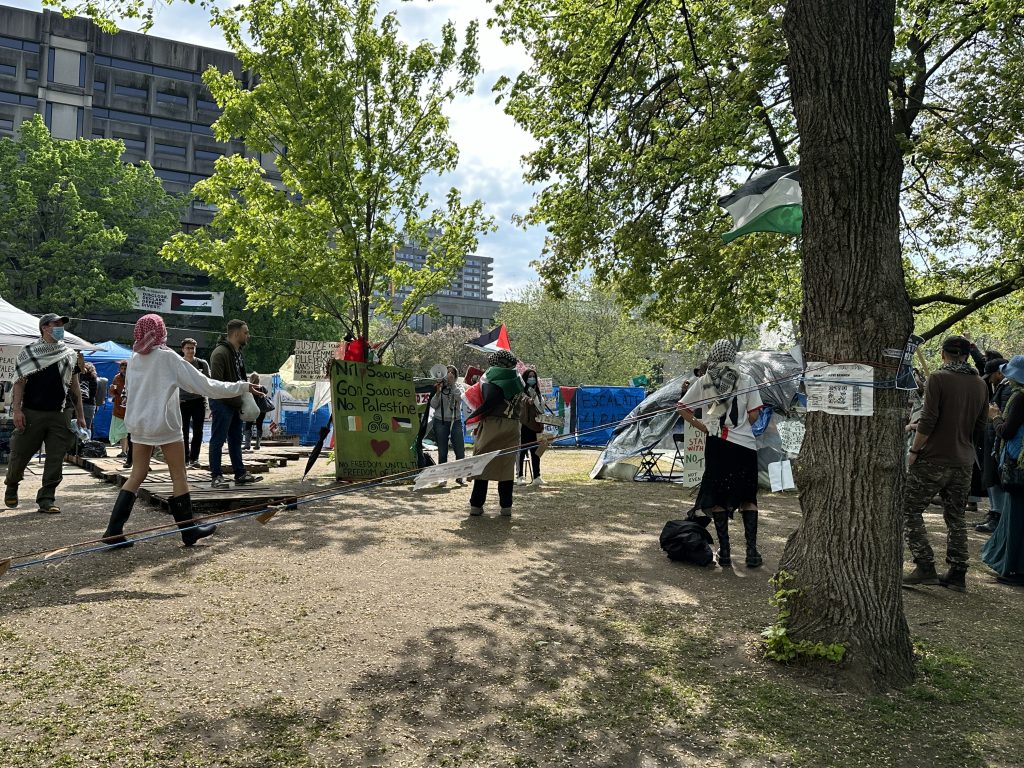City of Montreal making temporary adjustments to housing bylaw, easing requirements for developers
Posted March 14, 2024 5:24 pm.
Last Updated March 14, 2024 6:54 pm.
The City of Montreal is temporarily making adjustments to its housing bylaw, the regulation for a mixed metropolis, known as the 20-20-20 requirement — which forces developers to include 20 per cent of social housing, 10 to 20 per cent of affordable housing, and 20 per cent of family housing in new projects bigger than over 4,800 square feet.
On Thursday, vice president of the executive committee Benoit Dorais announced they’re easing some of the requirements to adapt to the new economic context.
“We are all doing to make sure that we construct more and we are constructing faster, it’s important to give the right tools and a break to developers, it’s really important, so we’re really confident the adjustment this afternoon is in face with what the promoters are asking,” said Dorais.
“They will enable us to adjust to the new economic reality and maximize the impact for the RMM in developing social and affordable housing.”
“Since day one, we’ve said that developers will not be very warm to the idea of having so many obligations, this is what we’ve heard, the government is asking too much,” said Martin Blanchard, Regroupement des comités logement et associations de locataires du Québec (RCLALQ).
The changes include more money to promoters in exchange for land, the temporary exemption of smaller projects up to 20 units, and the suspension of the affordable housing contribution required for most new housing projects.
“We are not very warm to affordable housing because we don’t see as much of a problem as there is for poorer people which needs social housing.”
“I remember at the public consultations, 50 participants all saying the same thing: you have to put the effort into social housing,” Blanchard added. “I’m that five years later the municipality understood the message, but we lost five years.”
Dorais says the bylaw that came into effect in April 2021 is “here to stay,” adding that more social and affordable housing units have been built in the city. The bylaw also helped them net almost $39 million for their social and affordable housing funds.
“I’m thinking in particular in the 206 agreements, since it came into force, totaling 660 social housing units,” explained Dorais.
The changes will be implemented on March 18 at Montreal’s city council meeting and remain in effect until at least December 2026.
“In the context actually, that’s the good thing to do. When the context changes we will also make some adjustments, so for now that’s the thing we have to do,” said Dorais. “With the new RMM we are keeping to our objective to preserving the diversity of our neighbours and promoting.”
But the adjustments were criticized by the housing advocacy group Front d’action populaire en réaménagement urbain (FRAPRU). In a press release, they say, “Despite the difficult economic context, we are disappointed that the city did not seize the opportunity to give more teeth to its bylaw.”
The organization says it would much rather see developers actually build the units, rather than pay a financial contribution.
“The group poorly understands the choice to spare developers from building of social housing in major developments considering that the needs are so dire.”
FRAPRU also calls on the Quebec government to stop placing the responsibility on municipalities.
“Without adequate support and predictability, Montreal, as all municipalities cannot meet the pressing housing needs on their own,” said Véronique Laflamme, spokesperson for FRAPRU, in their press release. “The budget of François Legault’s government, tabled on March 12, abandons poorly housed tenants.”



